Lecture Speaker: Stuart Pierson
Stuart is a Senior Project Officer at Wessex Archaeology, where he directs fieldwork projects. From 2018 to 2022, Stuart was responsible for directing Wessex Archaeology’s major infrastructure project at Coleshill Hall, Warwickshire, where he managed the onsite works of evaluation and mitigation in advance of High Speed 2.
Stuart studied archaeology at University Centre Peterborough and The University of Sheffield, with a focus on landscape and experimental archaeology. He took part in several research excavations including Flag Fen, the Lost City of Trellech Project, and the Sedgeford Historical and Archaeological Research Project.
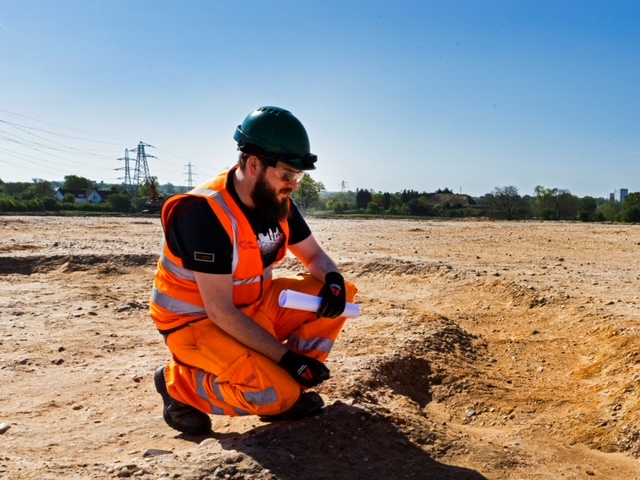
Lecture Speaker: Chris Patrick
Chris Patrick is Birmingham City Council’s Principal Conservation Officer and has worked as a conservation officer and archaeologist in the West Midlands for 25 years.
Journey Underground: Festival of Archaeology 2022
Date: 29 July
Times: 11am - 4pm
Location: Weoley Castle
Join Birmingham Museums for their Festival of Archaeology Open Day to discover what lies in the soil beneath your feet!
The ruins of Weoley Castle are over 750 years old, making it one of the oldest buildings still visible in Birmingham.
Regionally important archaeological finds have been discovered in the grounds making it the perfect site to explore this fascinating subject.
Drop-in to various activities throughout the day:
- Join walking talks around the site with Mike Hodder, former Birmingham City Archaeologist at 11.30am and 2pm. Space on the walks is limited and will be offered on a first come first served basis.
- Take part in a play dig giving children a chance to excavate hidden remains!
- Get hands on with replicas of Medieval objects and learn how the occupants of Weoley lived.
- People have journeyed from all over the world to settle in Birmingham, find out where the owners of the Ruins came from.
- Meet local archaeologists to learn more about their work.
- See archaeological finds from the site back on display at the Ruins for the first time in over 15 years!
Pre-booking is required, book tickets here
Access to the event is 11am - 4pm and you can stay as long as you like within this period.
Suitable for adults and families.
This event takes place outdoors and on uneven ground, suitable footwear and clothing is advised. Please note there are toilets facilities on site but no café.
This event is presented as part of the CBA Festival of Archaeology.
Shop And Give For Free!
News: Launch of New Books on the Soho Manufactory Sites and James Watt
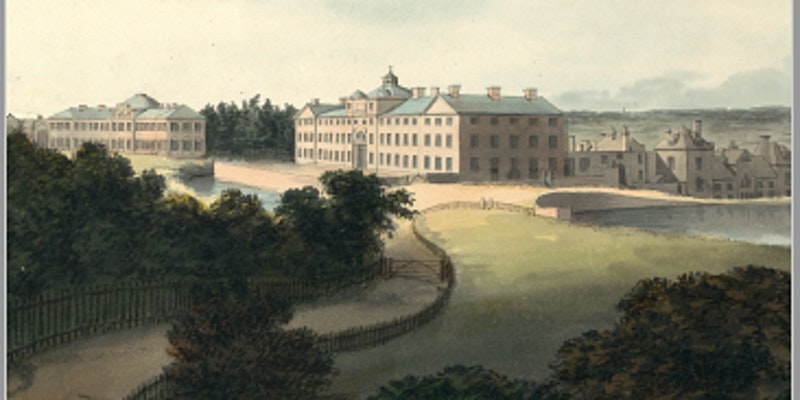
Launch of New Books on the Soho Manufactory Sites and James Watt Main Lecture Theatre
Floor 1, Arts Building, University of Birmingham, Edgbaston B15 2TT
Saturday 9 April 2022 from 1.30pm
Find out more here: Soho and Watt Book Launch programme
Book now: Tickets
Lecture Speaker: Felix Schmid
Felix Schmid, PhD, CEng, FIMechE, FIRSE, FPWI
Felix Schmid graduated from the Swiss Federal Institute of Technology in Zürich, Switzerland, with a master’s degree in electrical and electronic engineering. He worked for two years as a software analyst in Zürich and Solothurn, in the days of microcomputers with 32kb of RAM and 32kb of EPROM space. He then moved to GEC Traction (later to form part of Alstom) in Manchester, England, where he spent four years designing control systems for electric locomotives, at a time when sep-ex choppers were at the forefront of technology. Subsequently, he completed a one-year spell at the University of Manchester Institute of Science and Technology (UMIST), studying the non-galvanic measurement of electrical power. From UMIST he moved to the University of Salford to work as a mechanical design engineer on a knowledge transfer project with a machine tool manufacturer, where he later took a part-time role as the control systems designer.
From Salford, Felix transferred to Brunel University in West London to teach Computer Integrated Manufacturing, a new subject at the time. He developed a new approach to engineering education that resulted in him being awarded a doctorate in engineering. After a year in Switzerland as a railway inspector, where he looked after ‘private’ railways in the francophone part of the country, he returned to Britain, intending to resume his post at Brunel. Serendipity intervened and brought him to the University of Sheffield where he was tasked with developing the MSc programme in Railway Systems Engineering. He also conducted research into railway control systems and created railway short courses for London Underground, Britain’s Railway Inspectorate and Bechtel.
Felix was appointed to a professorship at the University of Birmingham in 2005, with the remit to move the railway MSc programme to a new home. The programme, now with the addition ‘and Integration’ grew rapidly in its new home and gained a worldwide reputation. This spawned the development of a Master of Research programme and of a new MSc in Railway Safety and Control Systems, in collaboration with the University of York and funded by the Lloyd’s Register Foundation. At the University of Birmingham, Felix was based in the Birmingham Centre for Railway Research and Education (BCRRE), the largest railway focused research centre in the western world, where he was heavily involved in research into railway capacity and systems engineering.
Felix later led the postgraduate programme in Urban Railway Engineering for the Singapore Mass Rapid Transit Institute (SMRTi), from autumn 2016 to his retirement in June 2020. This programme had some 250 students in Singapore and Felix took a team of 15 academic staff from Birmingham to Singapore twice a year.
In February 2018, The University of Birmingham received a Queens Award for Higher and Further Education, an achievement of which Felix is very proud. In 2020-2021, Felix was the chair of the Railway Division of the Institution of Mechanical Engineers. Felix is still teaching at the University of Birmingham interested in railway technology and its history.
![]()
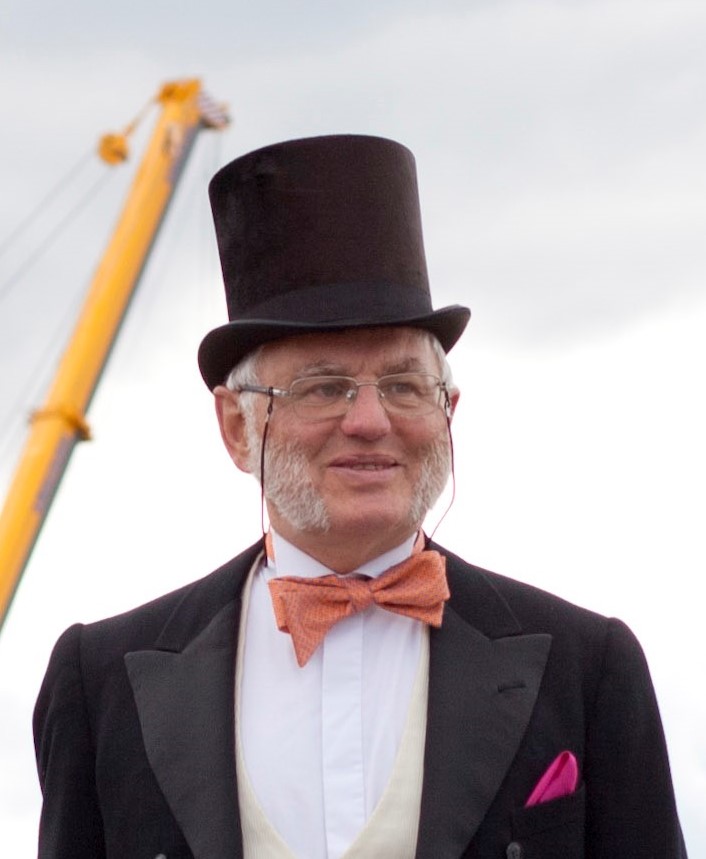
Lecture Speaker: David Freke
David Freke, MA DipAD, FSA MCIFA
Degree in Fine Art at Chelsea, Post Graduate degree in History of Art at the Courtauld Institute, but swapped the library and the gallery for the tent and the trench as a peripatetic archaeologist. Became Urban Archaeologist for the Institute of Archaeology, London, and then director of Liverpool University Field Archaeology Unit working in the North West and the Isle of Man, where he survived racing sidecars in the TT. Joined a national environmental consultancy in Oxfordshire which brought him to Oxford over 30 years ago and ultimately to south Warwickshire, where he lives on a farm surrounded by the earthworks of a deserted medieval village. Perhaps coincidently he is interested in local and landscape history, and more recently in the vernacular products of early modern country masons, as exemplified in local churchyards.
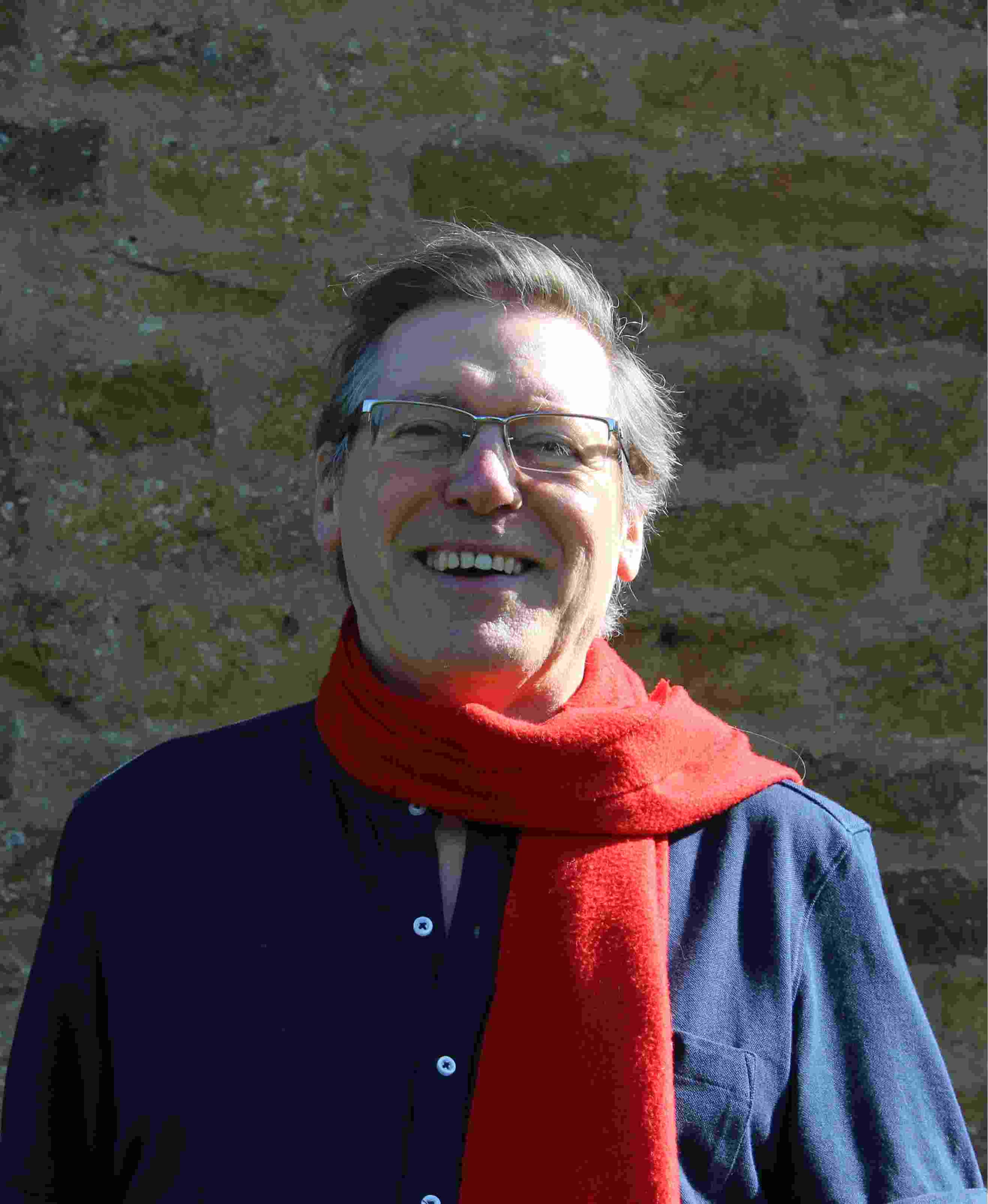
Lecture Speaker: Dr Roger White
Dr Roger White
Roger White has recently retired as a Senior Lecturer with the department of Classics, Ancient History and Archaeology at the University of Birmingham. He is now an Honorary Research Fellow with CAHA. His primary interest and research has been in the site of the Roman town of Viriconium at Wroxeter, whose archaeology has sustained his interest in the transition from late Roman Britain to the early middle ages. He is currently working with the Portable Antiquities Scheme to catalogue the fifth century Wem Hoard of hacksilver prior to its display in Shrewsbury Museum and Art Gallery.
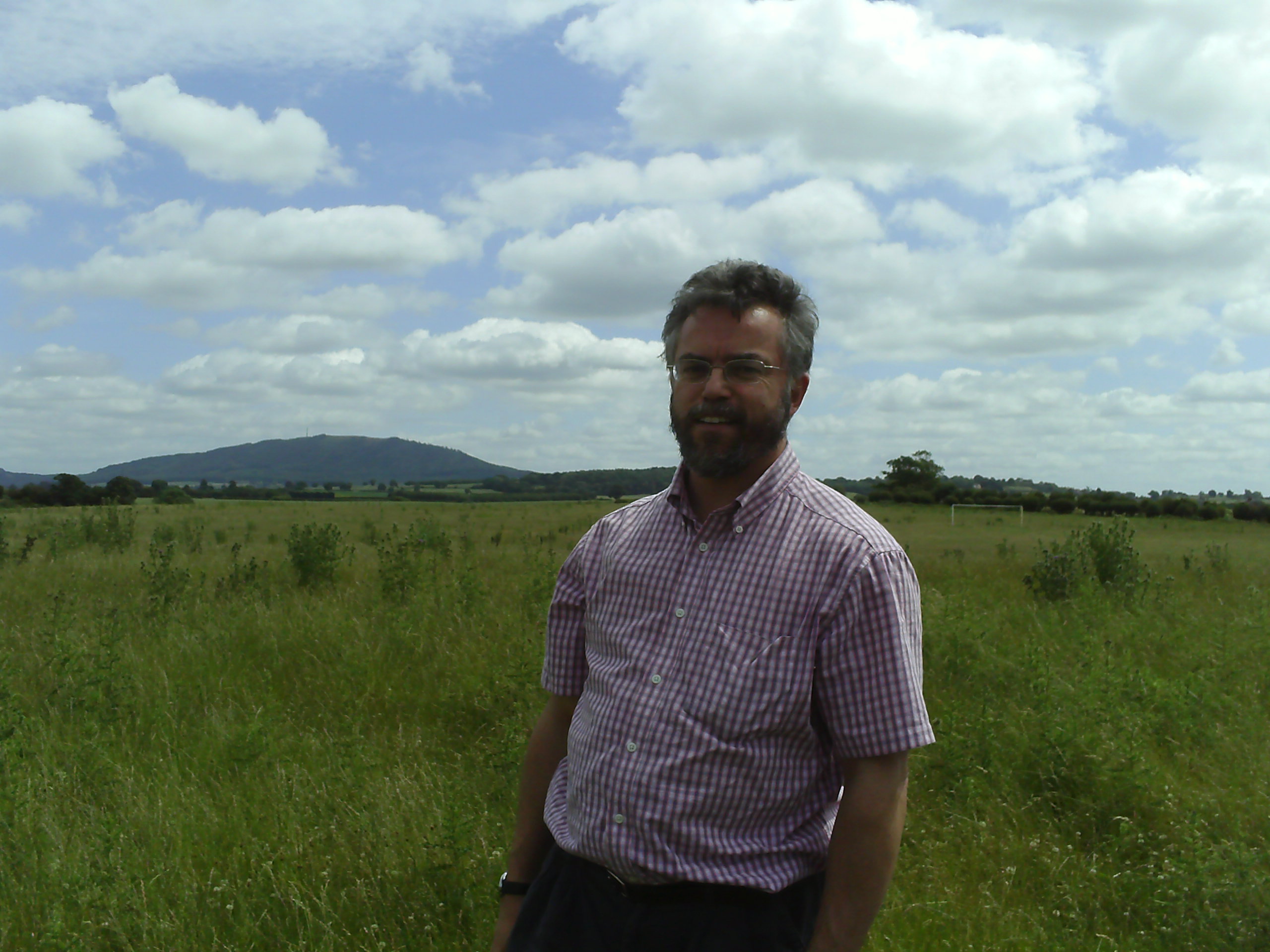
Lecture Programme 2021 - 22
2021 – 22 LECTURE PROGRAMME
Introducing the Birmingham & Warwickshire Archaeological Society Lecture Programme for 2021 – 2022. Our lectures are open to members and non-members alike.
Our lectures are FREE for members and members of affiliated societies. Members do not need to book tickets.
When non-member tickets are released, they are available for £5 (+booking fee). You will find links to book tickets on Eventbrite below.
All lectures commence at 7pm unless otherwise stated.
Subject to coronavirus: if physical attendance is not possible, BWAS will make every effort to hold lectures via Zoom.
Tuesday 5th October 2021
Eresh: City of Culture, 2550BC? A Sumerian city in southern Iraq
Speaker: Professor Nicholas Postgate
Venue: Edgbaston Park Hotel
This lecture has now taken place.
Tuesday 16th November 2021
Medieval Archaeology in Birmingham and Warwickshire
Articles published in the Society’s annual Transactions over the past 150 years reflect changing approaches, trends and priorities in the archaeological investigation of medieval Birmingham and Warwickshire. They show how an early and continuing interest in the above-ground archaeology of churches and other medieval buildings was later accompanied by excavations at monasteries, castles, moats, towns and villages, surveys of earthworks and landscapes, research into crafts and industries, and detailed studies of medieval floor tiles and other objects. Join us for this fascinating lecture to find out more.
Speaker: Dr Mike Hodder
Venue: Edgbaston Park Hotel
This lecture has now taken place.
Tuesday 7th December 2021
The Saxon site at Atcham
The great hall near Atcham, Shropshire, identified from the air in 1975, remains a rare example of a type site epitomised at the major Royal centre at Yeavering in Northumberland. Only just over a dozen of these sites are known from England and they remain somewhat enigmatic in their use and purpose. Although the Atcham site was scheduled straight away, recent threats from rabbits and metal detectorists prompted the need for a small-scale excavation of the site to assess its long-term survival. This was also an opportunity to establish its date and character, as well as train the next generation of archaeologists. This lecture presents the results, and establishes the context of the site as it is currently understood.
This lecture will be preceded by the Annual General Meeting.
Speaker: Dr Roger White
Venue: Edgbaston Park Hotel
This lecture has now taken place.
Tuesday 4th January 2022
Stonehenge and its landscape
Stonehenge occupies one of the most intensively studied archaeological landscapes in the world. However, most of this work has focused on the numerous visible monuments, with little attention to the areas between. Recent work focusing on extensive geophysical survey followed by borehole survey and targeted excavation has demonstrated the existence of numerous other, previously unknown monuments, in addition to new evidence for the earlier use of the landscape. This talk will outline the approach and results from this work, highlighting shifts in the interpretation of Stonehenge, in addition to some reflections on methodological approaches to the study of extensive prehistoric landscapes.
Speaker: Professor Henry Chapman
Venue: Edgbaston Park Hotel
This lecture has now taken place.
Tuesday 1 February 2022
The first London-Birmingham railway
Learn about the construction and early years of the London and Birmingham Railway. Felix will trace the history of this huge undertaking through the watercolours and lithographs of John Cooke Bourne (1 September 1814 to February 1896). Cooke Bourne’s pictures illustrate the amount of earth movements necessary to build the railway.
Felix will discuss some of the technologies used in the construction of this first railway to reach London. Felix is neither a historian nor an archaeologist but a railway systems engineer who enjoys talking about the history of railways and its pioneers.
Speaker: Professor Felix Schmid
Venue: Edgbaston Park Hotel
This lecture has now taken place.
Tuesday 1 March 2022
Cheddar Man and the genetic prehistory of Britain
Recent advances in DNA sequencing technology have meant that the analysis of DNA from ancient humans (ancient DNA) has gone from something extraordinary to a routine practise within a decade. We now have genetic information from close to 1000 ancient people who lived in Britain over the last 10,000 years . The majority of these people date to prehistory, and their DNA has provided new insight into the prehistoric inhabitants of Britain. In particular, these results have highlighted the significant role of migration in influencing cultural change and human genetic variation in British prehistory. This talk will discuss what we have learned so far from the genetics of the prehistoric inhabitants of Britain, and where future studies of ancient DNA are likely to take us.
Due to unforeseen circumstances, the speaker will now be joining us on Zoom. The lecture will still take place in person, and we look forward to seeing you at The Edgbaston Park Hotel.
Speaker: Dr Thomas Booth
Venue: Edgbaston Park Hotel
This lecture has now taken place.
Tuesday 5 April 2022
Medieval Graffiti of South Warwickshire Churches
The study of graffiti in churches has become a area of renewed interest recently, with the realisation that probably all English medieval churches once carried examples of these often enigmatic vernacular marks. This talk will consider the survival and the motifs of graffiti in and on churches in the South Warwickshire -North Oxfordshire area. It will cover the possible intentions of the makers, how they made the marks and what class of people they might have been, as well as examining the possible sources and meanings of the marks.
Speaker: David Freke
Venue: St Johns House Museum, Warwick
This lecture has now taken place.
Tuesday 3 May 2022 (12pm start)
A E Everitt, artist and antiquarian: the first Secretary of BWAS
This talk will explore the work of artist Allen Edward Everitt and the formation of the Birmingham Archaeology Society in 1871. Allen Edward Everitt (1824 – 11th June 1882) was an architectural and topographical artist who was interested in the study of buildings considered to be of historical interest as well as buildings which were at risk. Everitt created a phenomenal body of work which documented buildings across Birmingham and the region. This collection is part of the City’s collection of Topographical Views at Birmingham Museums.
Speaker: Jo-Ann Curtis, Curator of History at Birmingham Museums
Venue: Birmingham & Midlands Institute
This lecture has now taken place.
Wall Roman site, near Lichfield
The site museum, manned by volunteers from the Friends of Letocetum, is open until 29 October on the last Saturday and Sunday of each month. Admission free. http://www.wallromansitefriendsofletocetum.co.uk/
